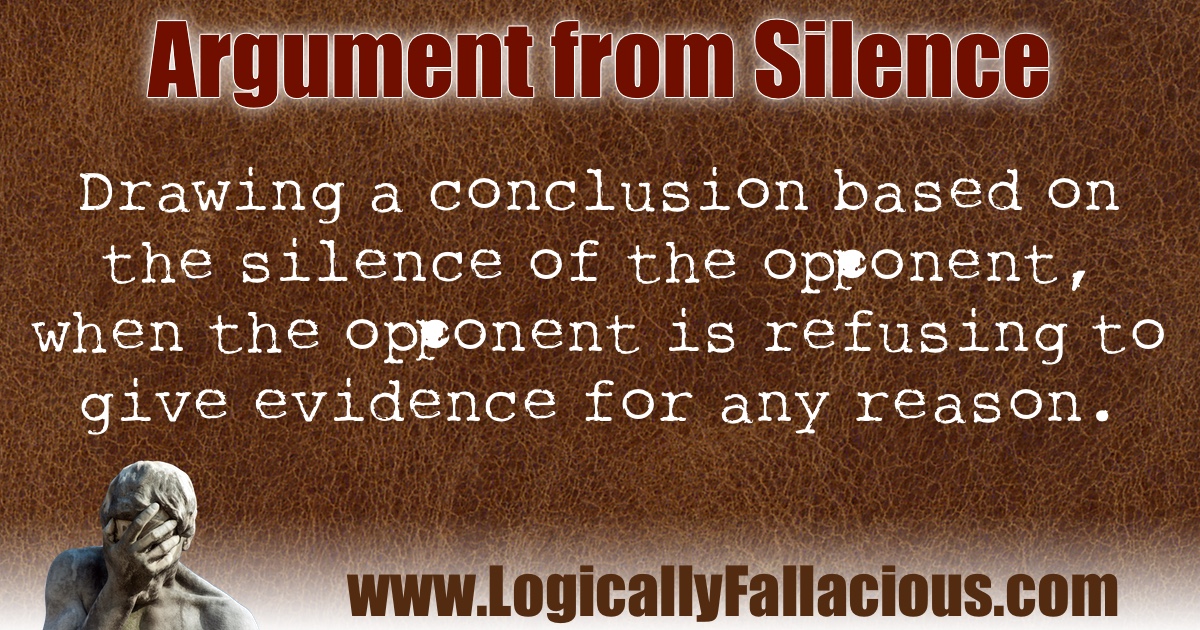argumentum e silentio
Description: Drawing a conclusion based on the silence of the opponent, when the opponent is refusing to give evidence for any reason.
Logical Form:
Person 1 claims X is true, then remains silent.
Person 2 then concludes that X must be true.
Example #1:
Jay: Dude, where are my car keys?
Silent Bob: (says nothing)
Jay: I KNEW you took them!
Explanation: Refusal to share evidence is not necessarily evidence for or against the argument. Silent Bob’s silence does not mean he took the keys. Perhaps he did, or perhaps he knows who did, or perhaps he saw a Tyrannosaurus eat them and was threatened by the king of the pixies not to say anything, or perhaps he just felt like not answering.
Example #2:
Morris: Oh youthful spirit, you have so much to learn. I know for a fact that there are multiple dimensions that beings occupy.
Clifton: How can you possibly *know* that for a fact?
Morris: (raises one eyebrow, stares deeply into the eyes of Clifton and says nothing)
Clifton: Wow. You convinced me!
Explanation: The reason this technique works so well, is because imagined reasons are often more persuasive than real reasons. If someone wants to be convinced, this technique works like a charm. However, to the critical thinker, this will not fly. Silence is not a valid substitute for reason or evidence.
Exception: Generally speaking, absence of evidence is not evidence; however, there are many cases where the reason evidence is being held back can be seen as evidence. In the first example, prompting Silent Bob to share a reason for his silence could result in a statement from Silent Bob that can be used as evidence.
Tip: Silence can be very powerful. In public speaking, knowing when to pause and let the audience digest what you said helps them comprehend your message. In argumentation, a pause after making a solid point can increase the odds your interlocutor(s) will accept the point.

References:
Bernecker, S., & Pritchard, D. (2011). The Routledge Companion to Epistemology. Routledge.